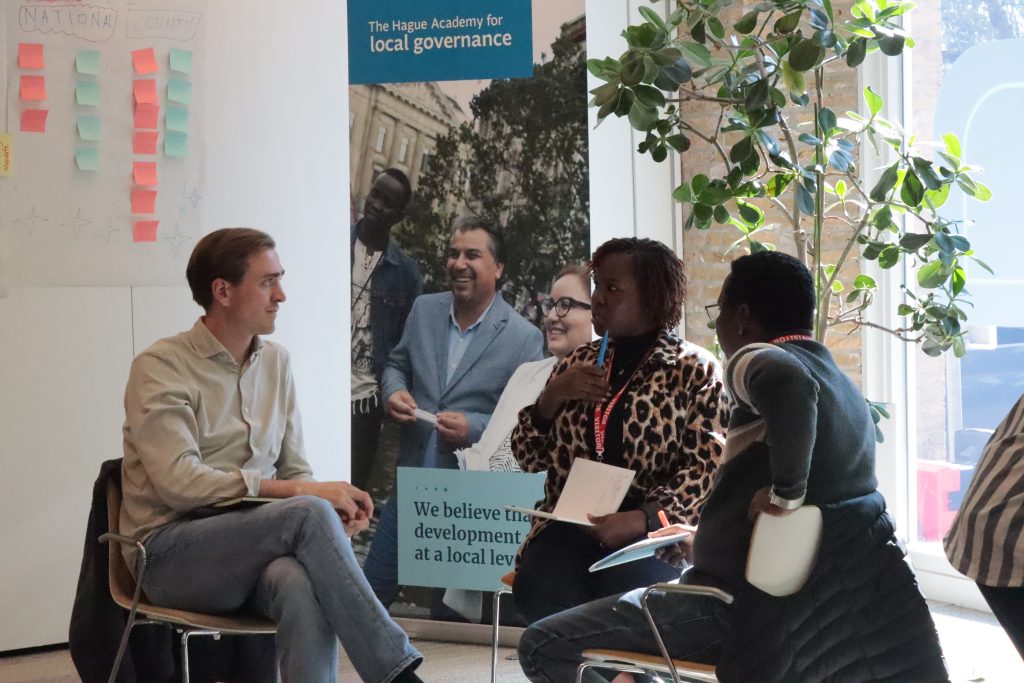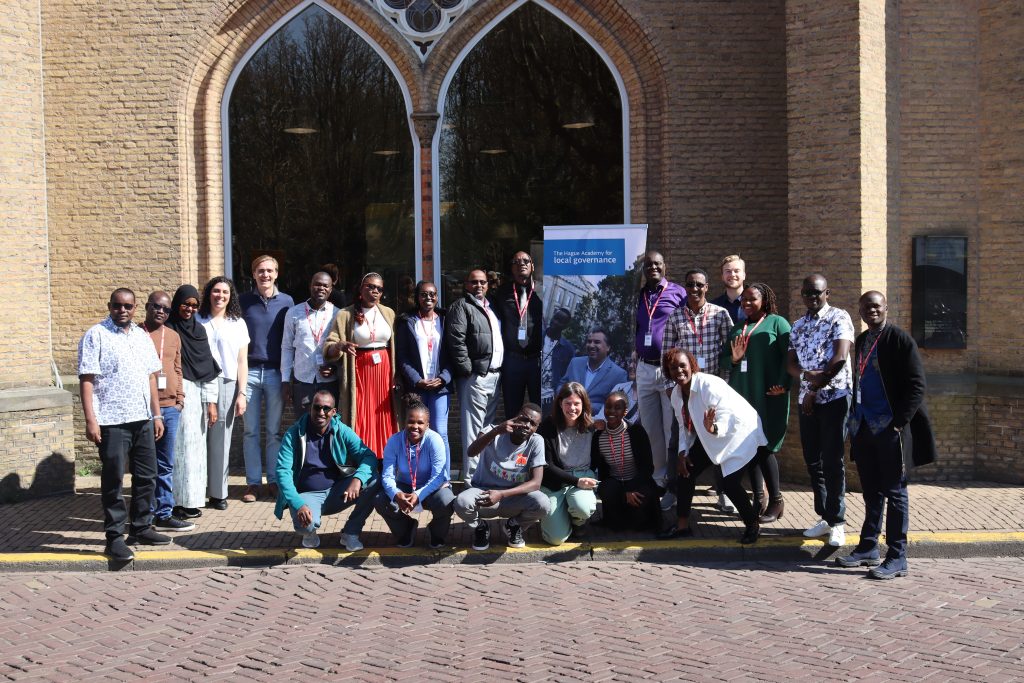How can municipalities support the integration of refugees while maintaining social cohesion and service delivery? In Kenya, this question is at the heart of a big policy shift—and local civil servants are leading the way.
With more than 800.000 refugees in Kenya and growing pressure on host communities, good local governance is essential. In early April, 31 Kenyan civil servants joined a two-week programme in the Netherlands to take part in the Sustainable Development through Local Governance initiative by VNG International, co-facilitated by The Hague Academy for Local Governance. With its expertise in training civil servants on local governance, The Hague Academy facilitates the training through international peer exchange, applied practice, and capacity development.

The project supports Kenyan civil servants involved in implementing the Shirika Plan—a national strategy to foster the socioeconomic inclusion of refugees in Kenya. Currently, the majority of these individuals are hosted in the large refugee camps in Garissa and Turkana. Ultimately, the plan intends for these camps to become municipalities, with refugees integrated in public service delivery and host communities.
Training the trainers: Local capacity with a multiplier effect
The first part of the programme centred on a Training of Trainers, to ensure that insights and best practices can be passed on to more practitioners. The curriculum was co-designed by partner the Kenya School of Government (KSG). KSG, a statutory institution established in 2012, is committed to strengthening the knowledge, skills, and competencies of public officials across Kenya, to ensure that local capacity is strengthening and multiplied through local civil servants.
Trainer and researcher from KSG, Purity Kagendo, highlighted the participatory nature of the sessions:
“More time was given to individual discussions, so you can build more on a concept.”
Participants noted that this inclusive approach encouraged deeper reflection, allowing them to explore diverse perspectives and build trust across professional and personal differences. Fellow KSG trainer Paul Chayuga appreciated the practical applications:
“We examined how to implement policies and theories through real-life examples—I look forward to focusing more on this aspect back home.”
Dutch Municipal Models for Refugee Inclusion
During the second part, the programme expanded to include practitioners from various government sectors. Participants took part in cross-stakeholder discussions, expert sessions, and field visits to explore Dutch best practices in refugee integration.
Site visits to the Koudenhoek shelter in Nijmegen and Plan Einstein Pahud in Utrecht provided compelling examples of initiating refugee integration from day one. These visits emphasized the essential role municipalities play in turning national policy into local action.
John Burugu, Commissioner at Kenya’s Department of Refugee Services, reflected on the importance of this strategy:
“The use of a common language in schools and in broader society supports cohesion across borders and communities. This programme showed how municipalities are essential to pick up the tempo set at national level.”
Shaping local policy through collaborative dialogue
The programme culminated in a symposium on the Shirika Plan implementation, bringing together Dutch and Kenyan policymakers, researchers, and practitioners. This forum facilitated honest dialogue and strategic exchange across national and local governance systems.
Hon. Peter Lochakapong, Chairperson of Kenya’s Regional Development Committee, underscored the relevance of Dutch approaches for local implementation:
“Distributing refugees proportionally across municipalities, based on population and socio-economic factors, helps ensure governments can lead in resource allocation and capacity strengthening.”
From dialogue to implementation
The programme supported Kenyan civil servants as they lead the Shirika Plan’s implementation. Through practical training, peer learning, and policy dialogue, they are now better equipped to foster inclusive, locally-driven approaches to refugee integration.
As the Shirika Plan progresses, these experiences will serve as a foundation for sustainable local governance and cohesive communities.
Would you like to equip your local government or organisation with the tools to manage migration inclusively? Join our Local Response to Migration and Refugees course and connect with practitioners shaping refugee policy worldwide.

Related courses
We offer a diversity of courses throughout the year. Here are several other courses you might like.

